Holocaust Survivor Pities Anti-Semites Who 'waste life' Hating
Several studies in recent months have indicated a rise in anti-Semitism, including ones by the US Agency for Fundamental Rights, the US Anti-Defamation League and the European Jewish Congress.
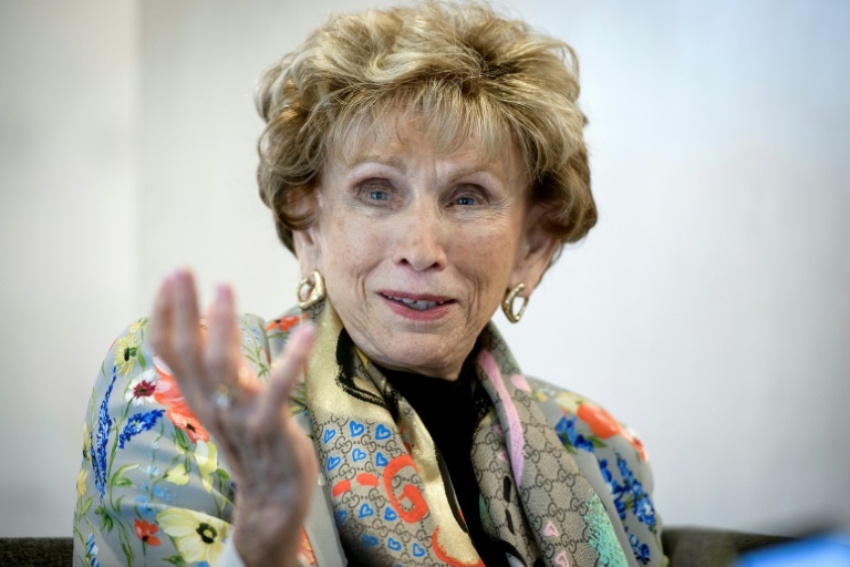
After being forced on a death march at the end of the war, Holocaust survivor Edith Eger was found with a broken back under a pile of corpses. Photo: AFP / Richard Juilliart
Facing a world where anti-Semitism is resurgent again, Holocaust survivor Edith Eger, who watched her mother marched to the gas chamber, said she pities those who "waste" their life hating.
Seventy-five years after arriving at Auschwitz, where she was forced to dance for the notorious Nazi doctor Josef Mengele, Eger told AFP that she, of course, felt sorry for the victims of rising hate speech and violence.
But the 91-year-old said she was especially distressed by those consumed by bigotry who really "do not acknowledge that (they) are one of a kind."
You should "not really waste your life hating," she said in an interview on the sidelines of a conference on compassionate leadership at the IMD business school in Lausanne.
Eger certainly knows what hatred can lead to.
The practising clinical psychologist, professor and author was just 16 when she and her Jewish family arrived at the Nazi death camp.
She recalled arriving in 1944 on a cattle car with her parents and one of her two sisters to Auschwitz, where an infamous slogan above the gate in German read "Work Will Make You Free".
"It was very chaotic. I saw the sign 'Arbeit Macht Frei', and my father even said: 'You know, we are just going to work and go home'," she said with a sad smile.
"That's not what happened. My father was taken to the gas chamber and my mother as well."
Danced for Mengele
Inside the camp, Eger, a trained gymnast and ballerina who had performed for the president in her native Hungary before the war, was called upon to dance for Mengele, who carried out atrocious experiments on prisoners.
"It was very scary because he came into the barracks and wanted to be entertained, and my friends just threw me in front of him," she said.
"I didn't know who he was, and so I closed my eyes and I imagined that the music was Tchaikovsky and that I was dancing Romeo and Juliette at the Budapest Opera house," said the petite great-grandmother, who is still capable of doing an impressive high kick.
Eger says she drew her strength from words her mother told her on the way to Auschwitz: "Just remember, no one can take away what you put in your mind."
'Never murdered my spirit'
"And she was right... Everything was taken away from me, but the Nazis could never murder my spirit."
They certainly tried. After being forced on a death march at the end of the war, Eger was found with a broken back under a pile of corpses.
After that, she strived for decades to forget the past.
"I didn't tell anyone about Auschwitz for at least 20 years because I didn't want to be different," she said.
But then, she said, she began to realise that refusing to think about the past was preventing her from coming to terms with what happened.
"I had a secret, and then the secret had me," said Eger, who published her best-selling memoir "The Choice" two years ago.
It talks of facing the past in order to move forward and choosing love and forgiveness over hate.
"I began my journey of forgiveness when I revisited Auschwitz," she said, adding that she finally "began to forgive myself that I survived."
"I have yet to finish that journey."
'Nightmares'
Eger said today's increasingly divided societies and harsh anti-migrant outlook brought back painful memories.
She especially lamented the policy put in place last year in her adopted homeland by US President Donald Trump of separating migrant families at the border.
"I have been having nightmares," she said.
"When I saw parents being separated from their children, I have been picturing myself being separated from my mother... I don't forget," she said.
Amid a domestic and international outcry, the Trump administration last June halted the policy of separating parents and children who illegally cross the US border.
But by then, thousands of children had been removed and placed in temporary accommodation, leading to harrowing images and reports of administrative chaos in which parents were later unable to find their children.
Those images provoked "very, very sad thoughts," Eger said.
Several studies in recent months have indicated a rise in anti-Semitism, including ones by the US Agency for Fundamental Rights, the US Anti-Defamation League and the European Jewish Congress. Two deadly shootings have struck synagogues in the United States in the past year.
Despite her despair over the state of the world, Elger voiced optimism for the future.
'Revenge on Hitler'
"I always find hope in hopelessness," she said while expressing confidence in today's youth.
"I see that young people today are questioning authority, rather than blindly adhering to authority," she said.
Eger said she considers herself a guide who can help lead people "from darkness to light, from victimisation to empowerment."
"You can get addicted to anger and live the life of a victim," she said. "I refused that. I was victimised. It is not who I am. It is what was done to me."
Instead of allowing herself to be defined by the horrors of Auschwitz, she said she was intent on rejoicing at life.
"It is wonderful to be alive and well. To be a mother of three and a grandmother of five and a great-grandma of four boys," she said.
"That is a good revenge on Hitler."
-

Asia hit hardest by climate and weather disasters last year, says UN
2024-04-23 -
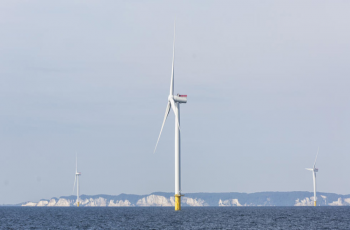
Denmark launches its biggest offshore wind farm tender
2024-04-22 -
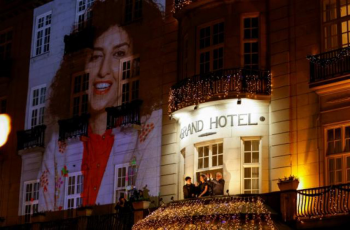
Nobel laureate urges Iranians to protest 'war against women'
2024-04-22 -

'Human-induced' climate change behind deadly Sahel heatwave: study
2024-04-21 -

Moldovan youth is more than ready to join the EU
2024-04-18 -
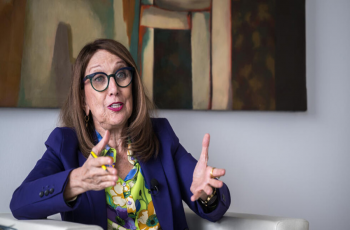
UN says solutions exist to rapidly ease debt burden of poor nations
2024-04-18 -

Climate impacts set to cut 2050 global GDP by nearly a fifth
2024-04-18 -
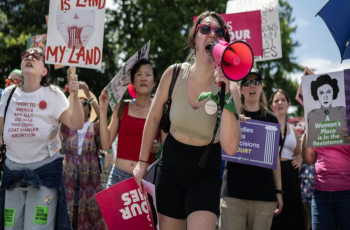
US sterilizations spiked after national right to abortion overturned: study
2024-04-13 -

Future of Africa's flamingos threatened by rising lakes: study
2024-04-13 -

Corporate climate pledge weakened by carbon offsets move
2024-04-11
